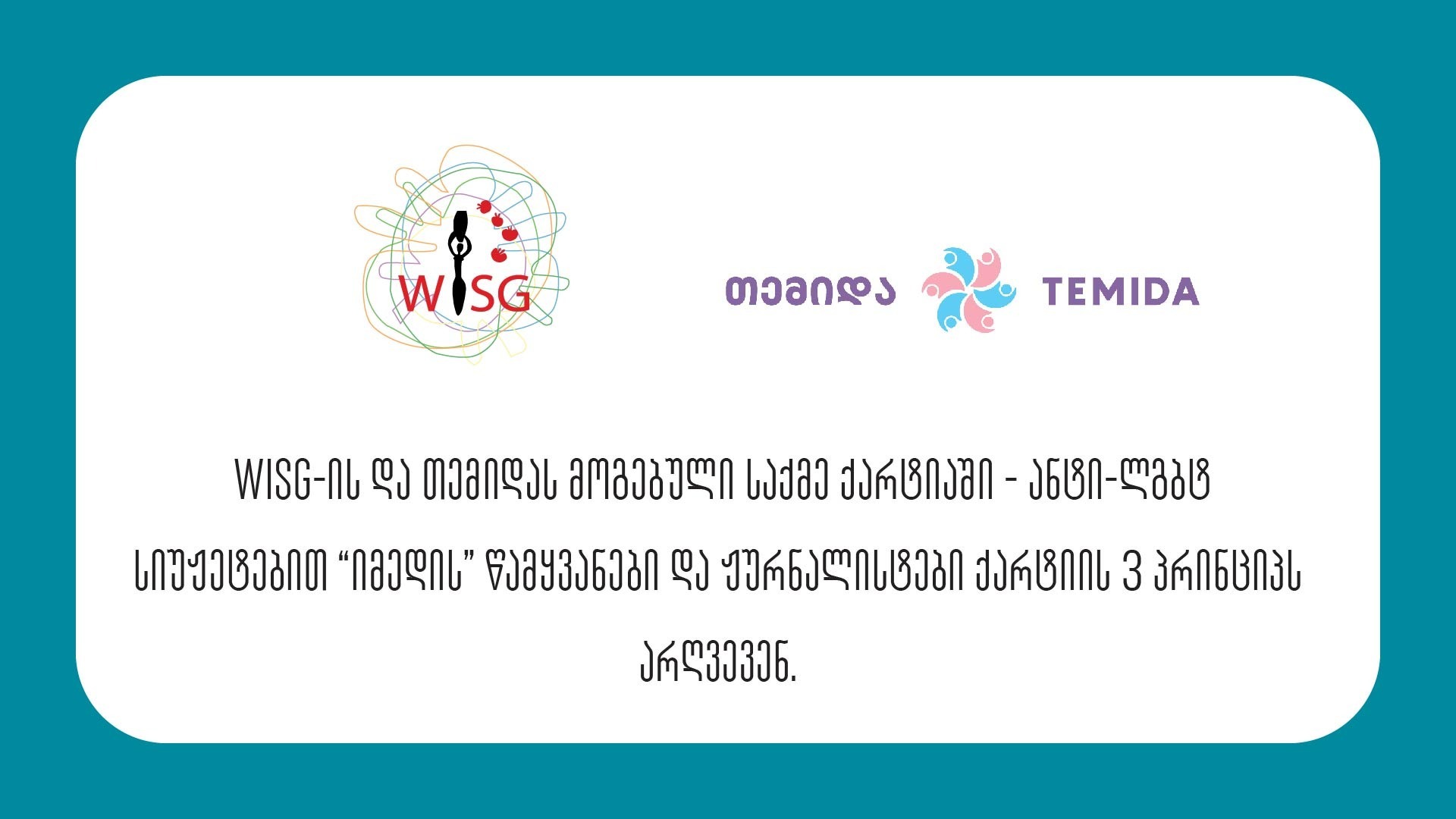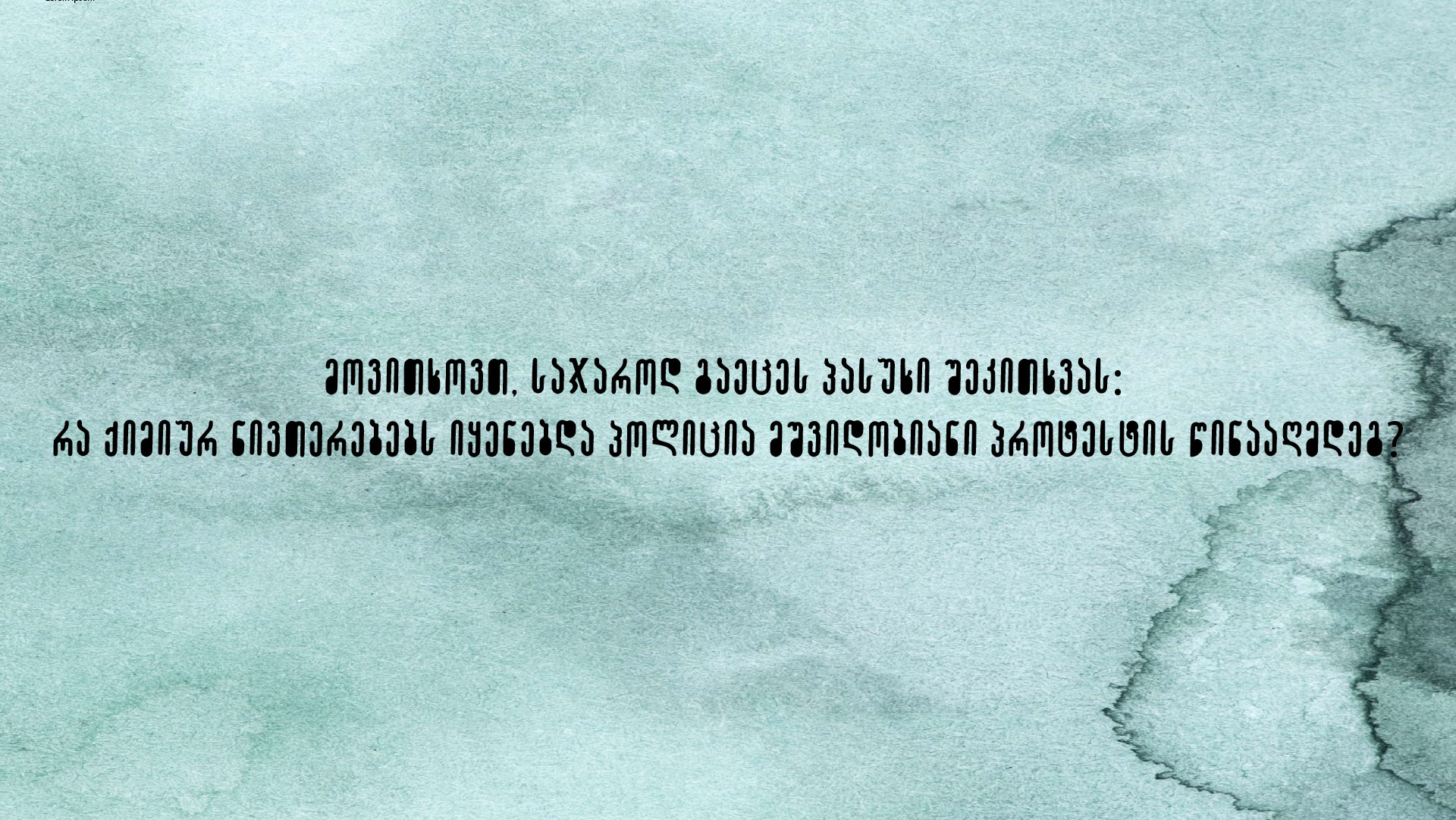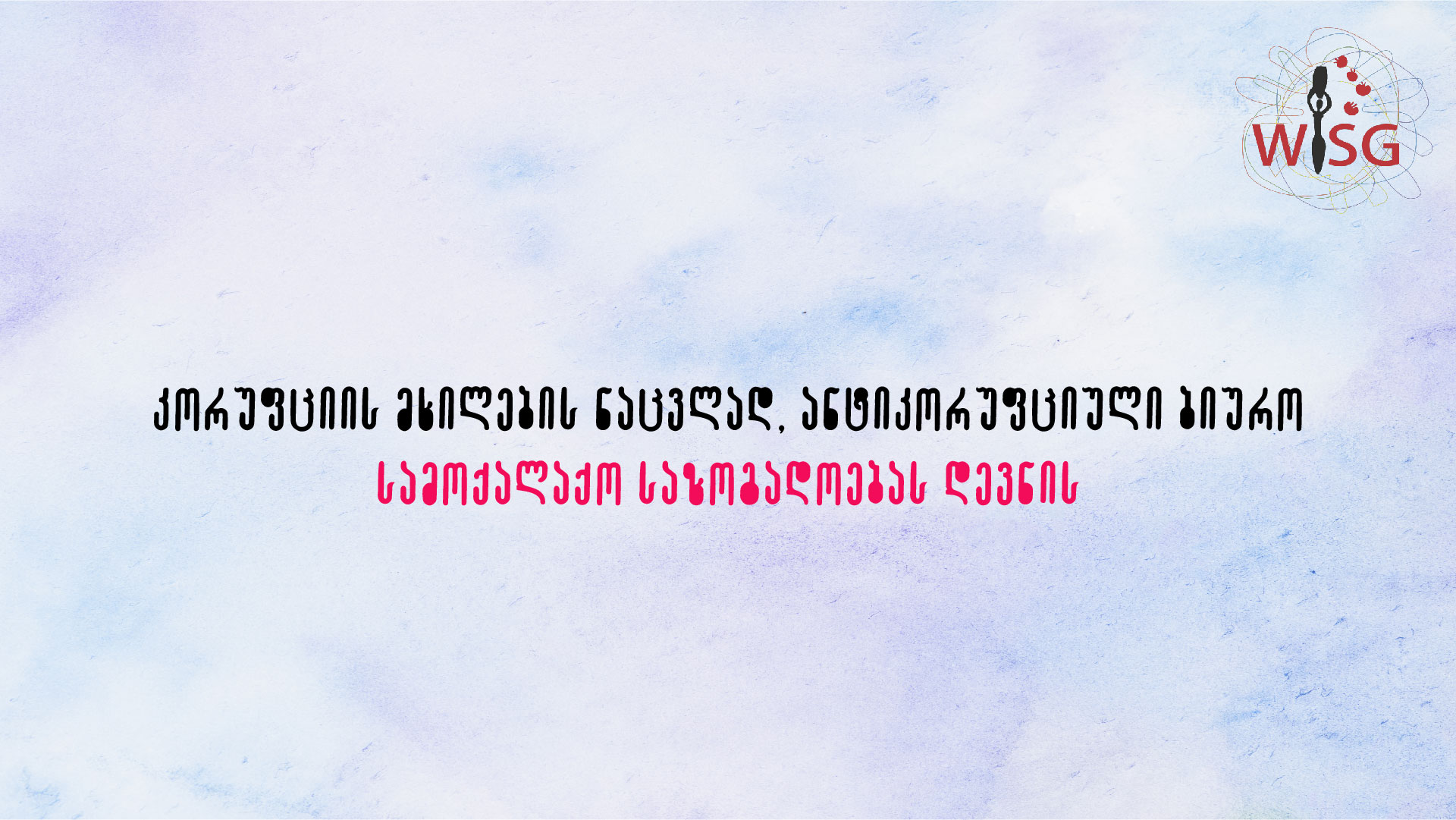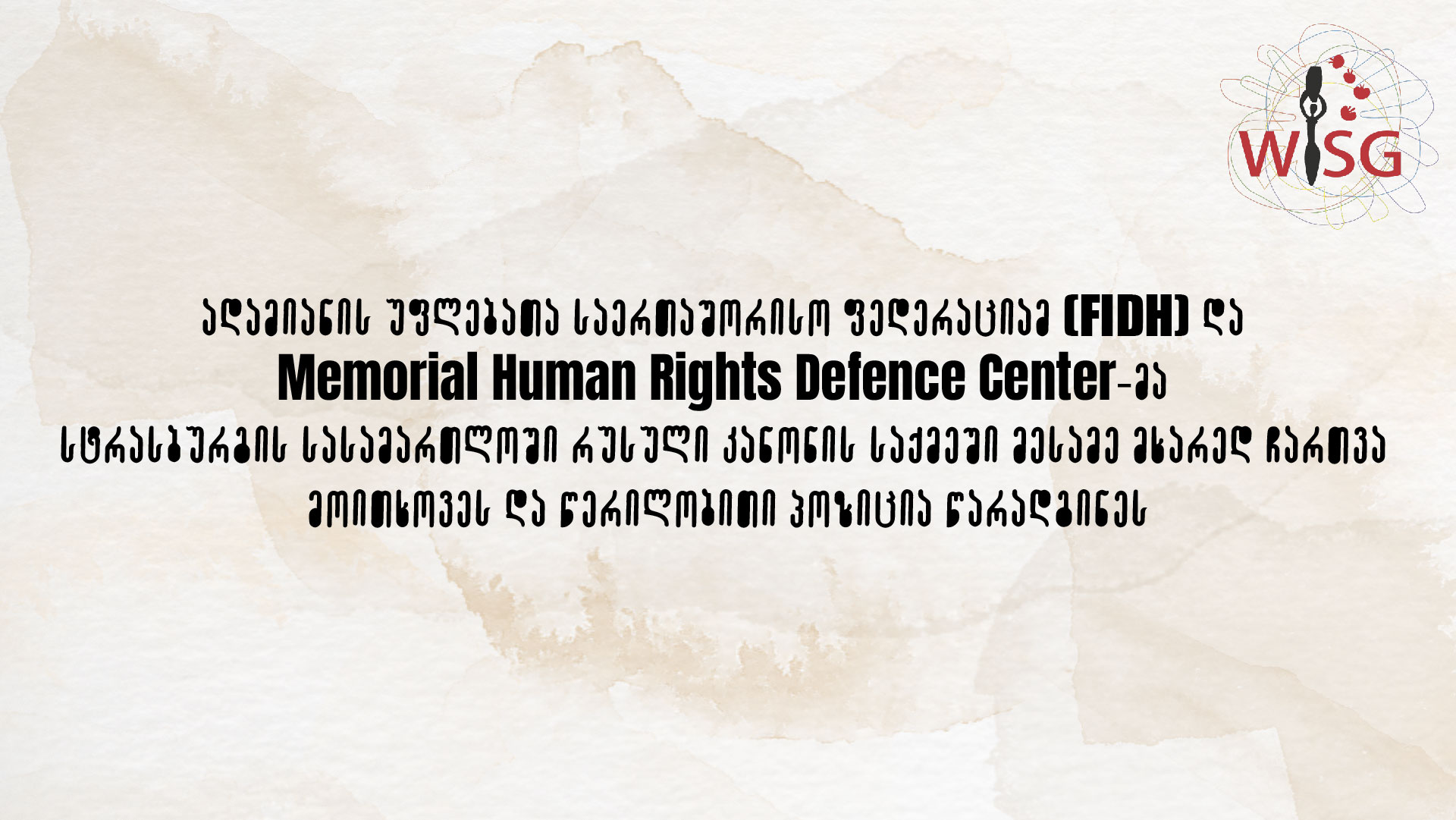Based on an appeal by WISG and Temida, the Charter of Journalistic Ethics investigated and found that anti-LGBT content aired on 'Imedi' TV channel in March 2024 violated the Charter's 1st, 7th, and 11th principles.
'Imedi,' whose editorial policy aligns with the ruling party's views, has a history of producing unethical, manipulative, and discriminatory content on gender and sexuality issues, for which it has faced repeated complaints in the past.
The timing of these controversial broadcasts also 'coincided' with the public introduction of new legislative proposals by 'Georgian Dream.' As early as in February, when leaders of the parliamentary majority began promoting anti-LGBT legislative initiatives, 'Imedi' aired a series of stories framing LGBT issues as 'propaganda,' which took on the appearance of a coordinated campaign.
Our complaint concerned three stories:
The story titled "Dangerous Propaganda" aired on March 3, 2024 in the program "Imedis Kvira" (anchor - Irakli Chikhladze, journalist - Saba Khvichia)
The report aired on March 17, 2024 in the "Imedis Kvira" program is entitled: "What dangers are sex-change operations at an early age - scandalous files";
In "Imedis Dghe" on March 28, 2024, the story "Exclusive interview with Detrans Ritchie Harrison" and/or "Scientists against surgical castration".
In the explanatory letter, the Charter Council largely agreed with our arguments.
Specifically, the Council confirmed that these stories violated the first principle, which states that 'a journalist must respect the truth and the public's right to accurate information.'
The stories include subjective, one-sided experts, and the accuracy of the information was not verified to the Charter’s standards. They fail to show diverse perspectives, excluding the voices of the queer community and organisations advocating for their rights in Georgia (or internationally). The stories also ignore the range of opinions and studies that exist globally on some of these issues.
The Council further notes that 'Imedi' TV's biassed and campaign-like approach turned these topics into a tool to support the 'Georgian Dream' government's agenda. To achieve this, 'Imedi' developed two main strategies:
First, the controversial content aired by 'Imedi' aligns with the government’s stated aim of combating so-called 'LGBT propaganda.' According to the Council, 'Imedi' aims to convince the Georgian public of the government’s main message: that improving the rights of queer people in the 'corrupt' West has led to disastrous, irreversible outcomes, especially for young people. Against this backdrop, the 'Georgian Dream' government is positioned as protecting Georgians from this 'threat' through new legislation.
Second, 'Imedi’s' coverage frames the 'radical opposition' as obstructing the government’s goal. In these stories, the opposition is cast as the defender and promoter of 'LGBT propaganda.'
To achieve these two goals, 'Imedi' repeatedly disregards accuracy, presenting a sensitive issue as a conflict between fabricated 'sides' (government vs. opposition). This artificial balance ignores real groups and perspectives, excluding those directly impacted by these issues.
The Council noted that part of the inaccuracy lies in the manipulation of the term 'LGBT propaganda,' as this term is fundamentally misleading and aligns with Russian disinformation tactics. Labelling efforts to raise awareness about gender identity or expression as 'LGBT propaganda' is a form of manipulation.
'It is evident that the term “LGBT propaganda,” promoted by Georgia's ruling political force and supportive media, is intended to sway public opinion,' the Council concluded.
The Council also identified a violation of the seventh principle, which states that 'journalists must recognize the harm that media can cause by promoting discrimination. Every effort should be made to prevent discrimination based on race, sex, sexual orientation, language, religion, political or other beliefs, national or social origin, or any other grounds.
The Council notes that 'Imedi' journalists deliberately portray LGBTQ individuals in a negative light, framing their existence and visibility as a societal problem and a shame for both secular and religious communities.
The Council found this principle violated across all contested stories, as each one depicts the queer community negatively.
The stories also violated the eleventh principle, which states that 'intentional distortion of facts' is a serious professional offence. According to the Council's standards, intentional distortion includes repeated, campaign-like spread of false information.
Our evidence showed that 'Imedi' frequently aired propaganda stories on these topics. For example, on February 26, 2024, they aired 'Pseudo-Liberalism and LGBT Propaganda,' followed by 'LGBT Propaganda - Responses' on February 27, and four segments titled 'LGBT Propaganda - Legislative Initiative' on March 1. Similar stories appear regularly on their 'Week of Hope' program.
Violation of Principle 11 is considered an aggravation of Principle 1, and the Council typically examines motive.
During the case discussion, WISG’s lawyer, Mariam Spasov, cited 'Imedi's' bias in favour of the ruling political force as a likely motive.
The Council agreed with our view, noting that 'Imedi' journalists’ messages closely align with those of the 'Georgian Dream' party. The airing of these controversial segments took place just before 'Georgian Dream' introduced new homophobic and transphobic legislative proposals to the public.
The party framed these proposed constitutional changes as necessary to combat so-called 'LGBT propaganda,' raising a strong suspicion that 'Imedi’s' active coverage was intended to shape public opinion in favour of these changes.
The Council identified supporting the ruling party as the purpose of 'Imedi's' broadcasts, highlighting that the story authors were aware of opposing views but chose not to investigate or include them. The Council sees 'Imedi’s' role as an official propaganda tool for the ruling party as a clear motive.
According to the Charter Council's resolution on Journalistic Ethics,
Presenters: Irakli Chikhladze and Nutsa Kavtaradze violated the Charter's 1st, 7th, and 11th principles.
Journalists: Saba Khvichia, Levan Tabatadze, Shota Kvinikadze and Ninia Zviadadze violated the 1st, 7th and 11th principles of the Charter.
On June 16, the Council of Journalistic Ethics published additional findings on an earlier case brought by WISG, Temida, and two individual applicants.
This case concerned the reportage titled 'Victim of a Medical Scandal,' aired on September 17, 2023, on the 'Imedis kvira” program. Similar to previous broadcasts, this reportage referred to 'LGBT propaganda' and used one isolated medical case to mislead the audience.
We pointed out that the journalist failed to provide accurate information about 'regret' statistics for transition surgeries, generalising one case. In reality, many U.S. states prohibit these procedures for minors, and in states where such surgeries are allowed, regret rates are statistically very low, making this generalisation misleading.
Additionally, the journalist linked this case to 'LGBT propaganda,' implying that people 'become' transgender due to propaganda. The journalist also used the incorrect term 'sex change' instead of 'gender confirmation.'
The Council confirmed that the reportage aligns with the ruling party’s 'LGBT propaganda' narrative. In its statement, the Council also referenced the Charter's 'Guidlines and Self-Regulatory Standards on the Sensitive and Ethical Reporting of Gender, Gender-Based Violence and LGBTQI Issues', which recommend accurate terminology to prevent discriminatory language.
In this reportage, the Council found violations of the Charter's first and seventh principles.







